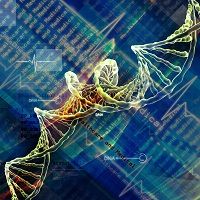Microbiome-Mediated Immunomodulation and Probiotics
Dietary amino acids are converted by the luminal microbiome in the gut to a bioactive compound, histamine, which binds to H2R and suppresses MAP kinase signaling and proinflammatory cytokines.

During the American Academy of Allergy, Asthma and Immunology’s 2015 annual conference in Houston, TX, James Versalovic, MD, PhD, Baylor College of Medicine, discussed the importance of amino acid (AA) metabolism in the microbiome and how important that is in immunology.
Bacteria in the gut metabolize amino acids, vitamins, and fibers to form bioactive compounds that affect immunity. Lactobacillus reuteri is the model organism in microbiome research. It is considered a single-species probiotic and is indigenous to the human intestine and several rodents. In humans, infection by L. reuteri has never been documented, and it is believed to be involved in the education of the immune system. It is known that L. reuteri produce compounds that can suppress proinflammatory cytokines, such as tumor necrosis factor (TNF). In 2012, Versalovic and his team identified histamine as one of the main factors produced by these bacteria. Additional studies confirmed the suppressive effect of histamine on human TNF.
Histamine is produced from L-histidine via histidine decarboxylase. Studies have shown that this pathway is decreased in patients with inflammatory bowel diseases, which decreases histamine synthesis and, consequently, increases expression of proinflammatory TNF. The histidine decarboxylase is encoded by 3 genes: histidine decarboxylase pyruvoyl genes P (HdcP), A (HdcA) and B (HdcB). Versalovic and collaborators have demonstrated that inactivation of these genes increase TNF expression. Further, they have demonstrated that mice fed with L-histidine-free diet lose their ability to suppress colitis.
There are four histamine receptors, but Versalovic highlighted that the histamine-induced TNF suppression occurs only via histamine receptor type 2 (H2R). He told the audience that the presence of H2R in the small intestine and colon of mice has been confirmed by immunohistochemistry, and that other researchers have confirmed the presence of this receptor in human gut as well. The activation of these receptors increases the levels of cAMP, which inhibits MEK/ERK MAPK signaling via protein kinase A (PKA). He also explained attendees that the addition of histamine-generating bacteria to intestinal lumen suppresses the expression of interleukin (IL)-1β and IL-6.
Next, he presented some in vitro experiments. The activation of H2R in cells led to the activation of adenylciclase and protein kinase A (PKA) pathway, which in turn reduced MAP kinase signaling. Ultimately, these alterations reduced proinflammatory cytokines gene expression.
In order to confirm the importance of H2R, Versalovic and collaborators have treated mice with colitis with pyrilamine, an H2R blocker. They observed that mice which received the drug had lost their ability to suppress inflammation. He also accentuated that the use of H2R blockers should be considered carefully. Some clinical trials have shown that H2R blockers might not be useful in a variety of disorders, in special necrotizing enterocolitis. Another study has shown that infants with very low birth weight that received H2R blockers had higher mortality rates.
In conclusion, this presentation focused on the ability of a single amino acid in the diet to be converted by the luminal microbiome in the gut to a bioactive compound, histamine, which binds to H2R and suppresses MAP kinase signaling and proinflammatory cytokines. Finally, Versalovic concluded that the presence of the dietary component and the genetic and enzymatic machineries will determine the final immunological response.